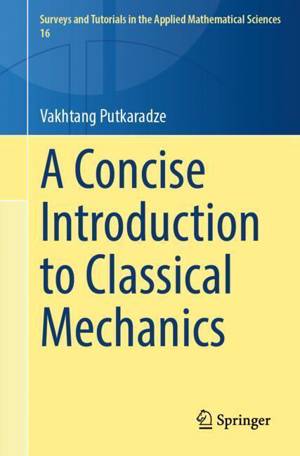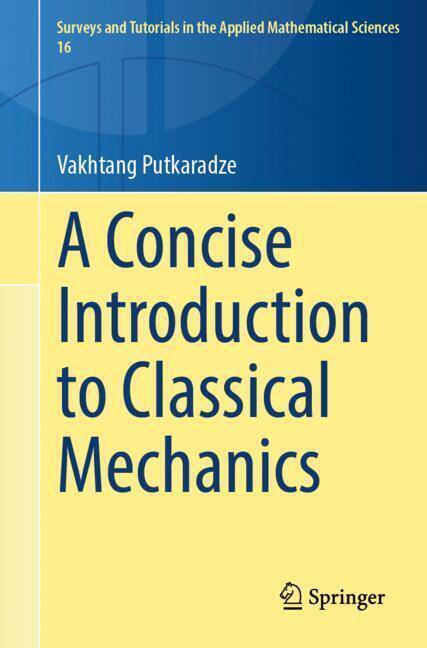
- Afhalen na 1 uur in een winkel met voorraad
- In januari gratis thuislevering in België
- Ruim aanbod met 7 miljoen producten
- Afhalen na 1 uur in een winkel met voorraad
- In januari gratis thuislevering in België
- Ruim aanbod met 7 miljoen producten
Omschrijving
Mechanics is one of the oldest and most foundational subjects in undergraduate curricula for mathematicians, physicists, and engineers. Traditionally taught through a classical, or "analytical," approach, modern advancements have introduced a "geometric" perspective that has found applications in diverse fields such as machine learning, climate research, satellite navigation, and more.
This book bridges the gap between classical mechanics and its modern, geometric counterpart. Designed for students and educators, it presents the essential topics typically required in mechanics courses while integrating a geometric approach to deepen understanding.
Key features include:
*Clear explanations of core concepts, including Lagrangian mechanics, variational methods, canonical transformations, and systems with constraints.
*Numerous solved problems and real-world examples to solidify understanding.
*Sample midterms and final exams to help students prepare for coursework and assessments.
*Every chapter includes a 'looking forward' section outlining modern applications of the material.
The book minimizes mathematical abstraction, introducing only the necessary concepts to make the material accessible and practical. Whether you're a student looking to master the essentials or an instructor seeking a fresh perspective, this book provides a comprehensive, approachable, and modern exploration of mechanics.
Specificaties
Betrokkenen
- Auteur(s):
- Uitgeverij:
Inhoud
- Aantal bladzijden:
- 208
- Taal:
- Engels
- Reeks:
- Reeksnummer:
- nr. 16
Eigenschappen
- Productcode (EAN):
- 9783031849763
- Verschijningsdatum:
- 29/04/2025
- Uitvoering:
- Paperback
- Formaat:
- Trade paperback (VS)
- Afmetingen:
- 156 mm x 234 mm
- Gewicht:
- 317 g

Alleen bij Standaard Boekhandel
Beoordelingen
We publiceren alleen reviews die voldoen aan de voorwaarden voor reviews. Bekijk onze voorwaarden voor reviews.









